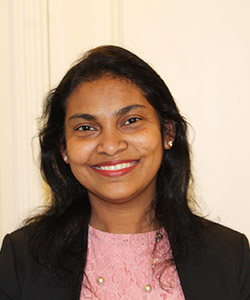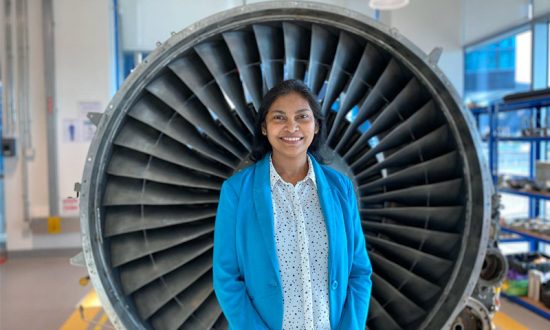Dr Jacinta Dsilva is an Assistant Professor – Marketing at Business School, Modul University, Dubai UAE, as well as a Visiting Professor at several other universities such as S.P. Jain College in Dubai and in China. She has also worked at several other prestigious UAE Universities in the past such as Emirates Aviation University, Higher Colleges of Technology and the University of Wollongong in Dubai. Dr Jacinta has also worked as Lecturer at the prestigious St. Agnes College Mangalore, India for five years.
“Learning is an active process. We learn by doing. Only know that is used sticks in your mind,” Dale Carnegie.
The traditional style of education or conventional teaching was delivered through recitation and memorisation techniques. Several higher education institutions still focus much on theoretical underpinning, which is excellent. However, when students complete their studies and enter the job market, they face challenges due to lack of practical knowledge since they are not fully trained to channelise their education to the workplace. The company has to make additional effort to provide work-ready training to make the employee understand the work requirements and make them productive. This is challenging for both the employee and the organisation since even in the 21st-century collaboration between higher education and industry is a path yet to be further explored and therefore, a gap exists.
The concept of ‘learning by doing’ is not a new pedagogy, it is a tried and tested formula and has been used in ancient times. Learning by doing means learning from experiences resulting directly from his/her actions, in comparison to learning from watching others perform, reading others’ instructions or descriptions, or listening to others’ instructions or lectures. This model can be embraced by primary and higher education to make learning more meaningful and useful in our daily lives. During the times we meet our alumni, one discussion is always prominent that, ‘half the things we learn during our studies do not help us in our work or life’. Therefore, educational institutions must work around the existing education system and make learning more experiential. Every student will immensely benefit from learning by doing model; notably, these changes will help them gain better job opportunities, and the employer will not need additional training to make them productive and efficient. There have been noticeable improvements in higher education institutions in embracing the learning by doing model. However, there is a lot that can be done to reduce the gap between theoretical and practical knowledge development.
We, as institutions, must work in the directions that will facilitate to make learning more hands-on and experiential by changing the way we design classwork or assessments. This will support learners to take responsibility for their learning and will make them proactive thinkers. They will also benefit from reflecting on their learning style, gain conceptual insights as well as practical expertise. Let’s further discuss some of the areas that will support learning by doing, if included in the curriculum.
- Financial Literacy
Financial literacy is a skill which supports an individuals’ conscious and effective financial decisions making. In today’s world, many people struggle to make sound financial decisions and therefore, suffer from colossal debt and other related issues. In the present condition, it is crucial to teach the younger generation well early in their life about making sound financial decisions. Even though students may study any stream such as engineering, humanities or business, they must have a course on financial literacy. The lesson could cover knowledge related to opening a bank account, strategies to save for the future as well as the importance of investing in the right opportunities. It is constantly noticed that student’s though in their final year of graduation have not entered a bank and therefore, have no or very little knowledge about how banks function. These students further enter the workforce but with very little knowledge about managing their finances, therefore, make several wrong decisions in life. I have often come across friends and family members who are in their late 30’s or 40’s and are still struggling with budgeting their income which leads to higher expenses than their salaries (one of the reasons for divorce and other devastating problems).
- Communication
These days it is prevalent to find tech-savvy students who are great at virtual communication using social media but, what about face to face communication? These days students’ find it hard to communicate with each other, they may have thousands of friends online. However, not many have the privilege to have real friends and therefore, many students suffer from loneliness. This will remain a major hurdle for the future generation who will be expert in using their fingers to type messages, but, would be unable to frame sentences to speak to their family and friends, in person. Here, we can create tasks during class activity, where students can communicate with each other to improve their communication skills through conducting interviews, focus group discussions and challenge-based team activities which will lead the students to communicate with each other with a healthy mindset.
- Basic life skills
Another important lesson that can be part of any curriculum would be to teach basic skills or survival techniques for day to day life. These could be supportive skills such as changing a car tyre, changing a bulb or repairing small appliances for urgent needs. These skills will make the younger generation self-reliant and less dependent on others to do basic tasks. Research would be another necessary skill which would be relevant and much needed in professional life.
- Critical thinking
Critical thinking is the ability to think clearly and rationally as well to understand the logical connection between the ideas. This skill can be developed by regular practising critical thinking on various occasions. One way to develop critical thinking is to read regularly (not social media posts though), understand by evaluating and questioning the thought process of every decision made. This is another skill which can support better decision making concerning personal and professional life.
- Sustainability
The world is becoming a dangerous place to live due to the way we are treating nature, and therefore, if we continue in this fashion, the future generation may not enjoy a blissful life. Therefore, we need to adapt to sustainable living if we want our future generation to see a better planet and survive longer. The Sustainable Development Goals (SDGs) developed by the United Nations are the blueprint and a signal that there is an urgent need to change our behaviour towards our mother nature. Therefore, planting more trees and nurturing them regularly, using public transport, reducing the unnecessary usage of electricity, water and plastic would be a contribution towards a better future. We can achieve this by fostering collaboration between educational institutions and public and private industry as well as by designing innovative projects and pursuing the idea of reuse, reduce and recycle.
About Dr Jacinta Dsilva

Dr Jacinta Dsilva has pursued Masters in Commerce from Mumbai University and MBA from Karnataka State University and was awarded PhD in Marketing from Coventry University, UK for her work on ‘Service quality in Low-Cost Carrier’ in 2017. Recently, Dr Jacinta has been awarded the Best Reviewer Award 2020 by Elsevier SSRN for the journal IJIEMR and Best Women Researcher award as well. She has also published two books, namely Business Communication and Surviving COVID-19: Stay Home Stay Safe. Dr Jacinta is known to work with her students and provide them with opportunities of presenting at conferences and publishing their papers.




